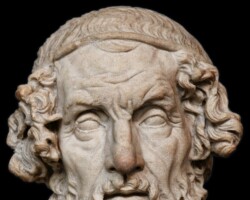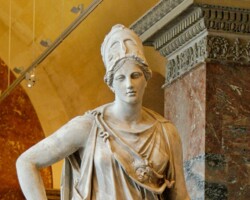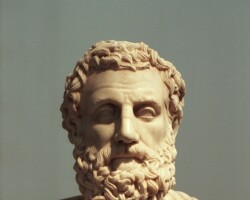Prudence
 Definition and Explanation
Definition and Explanation
- Catechism of the Catholic Church, point 1806:
- "Prudence is the virtue that disposes practical reason to discern our true good in every circumstance and to choose the right means of achieving it."
- Thomas Aquinas' Summa Theologiae, IIaIIae, question 47:
- Prudence is right reason applied to action and, therefore, is the perfection of the practical reason, which considers things done for an end.
- Prudence is wisdom about human affairs, but not wisdom per se because wisdom per se is about God.
- Aristotle's Rhetoric, Book I, Chapter 9:
- "Prudence is that virtue of the understanding which enables men to come to wise decisions about the relation to happiness of the goods and evils that have been previously mentioned," i.e. happiness, the virtues, bodily excellence, wealth, friendship, intellectual excellence, etc.
Examples from Western History and Literature

Odysseus’ Praise of Penelope
“Lady, no mortal man on the endless earth could have cause to find fault with you; your fame goes up…

Athena Mentoring Telemachus
I will urge you to consider some means by which you can force the suitors out of your household. Com…

Athena to the Furies
I will not where are you telling the good things I offer, so that you can never say that you, an eld…


